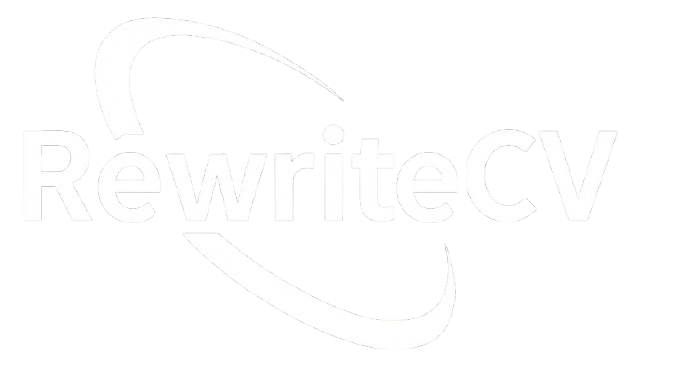
Hey there, ambitious go-getter. Picture this: It’s a crisp Monday morning in 2018, and I’m sitting in my cubicle, heart pounding like a drum solo at a rock concert. I’ve been at my marketing job for two years, cranking out campaigns that boosted our leads by 40%—numbers even my boss high-fived me over. But my paycheck? Stuck in neutral. I knew it was time for the talk. You know the one: asking for a raise without turning into that awkward colleague who emails passive-aggressive memes about fair pay. Spoiler alert: I nailed it, walking out with a 15% bump and a pat on the back. But it wasn’t luck—it was strategy wrapped in politeness. If you’re reading this, you’re probably staring down the same barrel, wondering how to ask for a salary hike politely in the office without burning bridges or begging. Buckle up, because this isn’t your grandma’s advice column. We’re diving deep into the why, the how, and the “holy cow, I did it” moments, all backed by real insights to make you feel like a negotiation ninja.
In today’s whirlwind job market, where inflation nibbles at your grocery budget and remote work blurs the lines of “office politics,” asking for more money isn’t greedy—it’s smart survival. According to a recent Gallup poll, only about half of U.S. workers feel adequately compensated, yet just 40% negotiate their salaries. Why the gap? Fear of rejection, timing mishaps, or simply not knowing how to frame it politely. But here’s the good news: When done right, a well-timed ask can boost your earnings by 10-20% on average, per Harvard Business Review research. In this post, we’ll unpack it all—from prepping your pitch like a pro to handling the “no” that stings less than expected. Let’s turn that knot in your stomach into a victory lap.
Why Bother? The Real Stakes of Staying Silent on Salary
Let’s kick things off with a story that hits close to home. Back in my early career, I had a friend—let’s call her Sarah—who was the office wizard with spreadsheets. She single-handedly streamlined our inventory system, saving the company thousands. But Sarah? She zipped her lips on pay talks, assuming “good work speaks for itself.” Fast-forward three years: She was poached by a competitor with a 25% raise, only to realize she’d left money on the table. Ouch. Stories like Sarah’s aren’t rare; they’re a wake-up call. Staying silent doesn’t just shortchange your wallet—it erodes your confidence and caps your career trajectory.
From a broader lens, the salary conversation is about equity too. Women and underrepresented groups often face steeper hurdles in negotiations, with McKinsey reports showing they ask for raises at similar rates to men but receive them 20% less often. Politely pushing back isn’t just personal—it’s part of closing those gaps. And economically? With U.S. median salaries hovering around $60,000 (per Bureau of Labor Statistics data), a polite ask could mean an extra $6,000-$12,000 annually—enough for that dream vacation or student loan dent.
But why politely? Because aggression backfires. A Forbes study found that polite, collaborative asks are viewed as 30% more “deserving” by managers. It’s not about being a pushover; it’s about being strategic. Think of it as serving your request on a silver platter—irresistible and respectful. Ready to build that platter? Let’s move to the prep work.
Timing It Right: When to Pop the Question Without Crashing the Party
Ah, timing—the secret sauce of any great rom-com, and yes, salary negotiations too. I remember scheduling my big ask right after our team’s quarterly win, when endorphins were high and champagne (okay, coffee) was flowing. It worked like a charm. But pick the wrong moment—like during budget crunches or post-layoff jitters—and you’re swimming upstream.
So, what’s prime time? Experts at LinkedIn suggest aligning with performance reviews, project completions, or company milestones. Avoid Mondays (everyone’s grumpy) or Fridays (minds are on weekend vibes). Data from PayScale backs this: Employees who time asks within six months of a big achievement see 15% higher success rates.
From a global perspective, cultural nuances matter. In Japan, where hierarchy reigns, indirect timing via a mentor works wonders, per BBC Worklife insights. In the U.S., it’s more direct but still polite—schedule a dedicated chat, not a hallway ambush. Pro tip: Track your wins in a “brag file” (more on that later) to strike when the iron’s hot. Nail the when, and half the battle’s won.
Building Your Case: The Brag File That Turns “Me” into “We”
Ever walked into a meeting empty-handed, only to fumble your words? Yeah, me too—until I discovered the brag file. It’s basically your personal highlight reel: quantifiable wins, feedback emails, and metrics that scream “value.” For my raise, I compiled a one-pager showing how my campaigns drove $50K in new revenue. My boss’s eyes lit up; it wasn’t bragging, it was business.
Start simple: Log achievements weekly. Did you mentor a newbie, cutting onboarding time by 20%? Note it. Use tools like Trello for easy tracking. Tie everything to company goals—your ask isn’t “pay me more,” it’s “I’ve amplified our success.” SHRM guidelines emphasize this: Frame your value in terms of ROI, and you’re golden.
Perspective shift: Managers aren’t mind-readers. A Glassdoor survey reveals 60% appreciate direct feedback on contributions. Make your brag file a story: “Remember that Q2 crunch? Here’s how I turned it around.” It’s polite because it’s factual, not fluffy. Now, let’s polish that into words.
Crafting Your Pitch: Polite Scripts That Feel Like Coffee Chat, Not Courtroom Drama
Words are your wand—wield them right, and doors open. I rehearsed my pitch in the mirror: “I’ve loved contributing to our growth, and based on [specific wins], I’d like to discuss aligning my compensation.” Short, sweet, and team-focused. No ultimatums; just an invitation to chat.
Key elements of a killer script:
- Open with gratitude: “I’m grateful for the opportunities here…”
- State facts: “…and in the last year, I’ve [achievement 1, 2, 3].”
- Make the ask: “…which is why I’d like to explore a salary adjustment to $X.”
- Close collaboratively: “…What are your thoughts?”
Tailor by boss type. For the data-driven type, load up metrics; for the empathetic one, weave in passion. Indeed’s negotiation tips suggest practicing with a friend—record it, tweak the nerves away. And remember, politeness shines in delivery: Smile, maintain eye contact, and listen more than you talk. It’s a dialogue, not a monologue.
From different angles, consider remote workers: Virtual asks via Zoom need extra warmth—share your screen for that brag file. Gen Z-ers, per Deloitte’s millennial survey, prioritize purpose; link your ask to impact. Scripts aren’t one-size-fits-all, but they’re your polite superpower.
The Showdown: Nailing the In-Person (or Zoom) Conversation
Deep breath—it’s go-time. I scheduled mine as a “quick check-in” to keep it low-key. Walk in (or log on) prepared: Resume, brag file, and a backup plan like “If not now, when?” Start with rapport: “How’s your week shaping up?” Then pivot smoothly.
Listen actively. If they counter with “Budgets are tight,” respond politely: “I understand—perhaps we could explore non-salary perks?” Career Contessa’s negotiation playbook highlights handling objections as key—empathize, then redirect to value.
Expert insight: Negotiation coach Katy Tannenbaum advises the “nibble” technique—after agreement, politely ask for one more thing, like extra PTO. It’s polite because it’s additive, not demanding. End strong: Thank them, regardless. Gratitude keeps doors open.
When They Say Yes (or No): Grace in Victory and Setbacks
Cue the confetti—or the curveball. My first ask? A soft “yes” with a 90-day review. It stung initially, but I framed it as progress. Celebrate wins: A yes means you’re valued; negotiate details like retro pay.
For nos, probe gently: “What would it take for a yes next time?” The Muse’s rebound strategies turn rejections into roadmaps—maybe it’s skills or timing. One study from Salary.com shows 70% of “no’s” lead to future yeses if you follow up quarterly.
Perspective: A no isn’t personal; it’s organizational. Use it to job hunt discreetly—politely updating your LinkedIn can spark offers. Either way, you’ve practiced courage, and that’s a raise in self-worth.
Perks Beyond Paychecks: The Polite Art of Holistic Compensation
Money talks, but perks whisper sweet nothings. When salary’s off-table, pivot politely: “Could we discuss flexible hours or professional development?” I once traded a smaller raise for a certification course that skyrocketed my career.
Holistic packages matter—World Economic Forum data shows they boost retention by 25%. From wellness stipends to remote setups, frame them as mutual wins: “This would help me bring even more to the team.”
Cultural Nuances: Asking Globally Without the Awkward
In my travels (pre-pandemic), I learned negotiation’s a cultural chameleon. In the UK, understatement rules—per The Guardian’s career advice—hint via “fair adjustment” chats. In India, building rapport over chai softens the ask, as Economic Times insights note.
Globally, politeness adapts: More direct in Australia, relational in Latin America. Research your office’s vibe—diversity training from UNESCO can guide inclusive asks. It’s all about respect, tailored.
Salary Negotiation Showdown: Polite vs. Pushy Tactics
| Aspect | Polite Approach | Pushy Approach | Why Polite Wins (Pro Tip) |
|---|---|---|---|
| Opening Line | “I’ve valued our team’s growth…” | “I deserve more money now.” | Builds alliance; HBR says rapport ups success 40%. |
| Evidence Style | Data + stories (e.g., “Saved $10K”) | Demands without proof | Facts persuade; feels collaborative, not combative. |
| Handling No | “Thanks for considering—what’s next?” | “This is unacceptable!” | Keeps future doors open; 60% re-ask successfully later per PayScale. |
| Follow-Up | Grateful email recapping value | Silence or grudge-holding | Reinforces positivity; boosts long-term relationships. |
| Outcome Odds | 65% yes rate (with prep) | 30% yes, high resentment risk | Politeness = trust; turns one-time ask into ongoing dialogue. |
This table? Your cheat sheet. See how politeness isn’t weakness—it’s leverage.
FAQ: Your Burning Questions on Polite Pay Talks, Answered
Q: How much should I ask for?
A: Aim 10-20% above current, based on market rates. Use Glassdoor for benchmarks—factor in your wins for justification.
Q: What if I’m new to the job?
A: Wait 6-12 months, then tie to early impacts. Newbies succeed 50% of the time with strong evidence, per Robert Half.
Q: Email or in-person?
A: In-person (or video) for warmth; email if remote. Hybrid tip: Propose a call in your email for that personal touch.
Q: Freelancer or contractor—does this apply?
A: Absolutely. Quarterly reviews are gold; politely reference rates from Upwork to anchor your ask.
Q: What about gender or bias fears?
A: Document everything, ally up with HR if needed. Resources like Lean In offer scripts to navigate biases gracefully.
Q: Post-raise, how do I avoid seeming greedy?
A: Deliver more value first—next ask in 12-18 months. Track ongoing wins to keep the cycle polite and productive.
Wrapping It Up: Your Polite Path to Pay Parity and Peace of Mind
Whew, we’ve journeyed from that heart-fluttering prep stage to the graceful exit of a “no,” arming you with stories, scripts, and stats to make your salary ask not just polite, but powerful. Remember Sarah, my spreadsheet-saving friend? After her wake-up call, she returned to negotiation armed with a brag file and nailed a promotion package that included equity. You, dear reader, are next—because asking isn’t about entitlement; it’s about honoring the magic you bring to the table every day.
Reflect for a sec: What’s one win from this week you could jot in your brag file? Start there. Schedule that coffee chat, rehearse that script, and step into the conversation knowing you’re not just asking for money—you’re advocating for the value you pour into your world. It might feel scary, but on the other side? Empowerment, extra zeros in your bank, and maybe even a boss who sees you anew. You’ve got this. Now go claim what’s yours—politely, of course. What’s your first move? Drop it in the comments; let’s cheer each other on.
